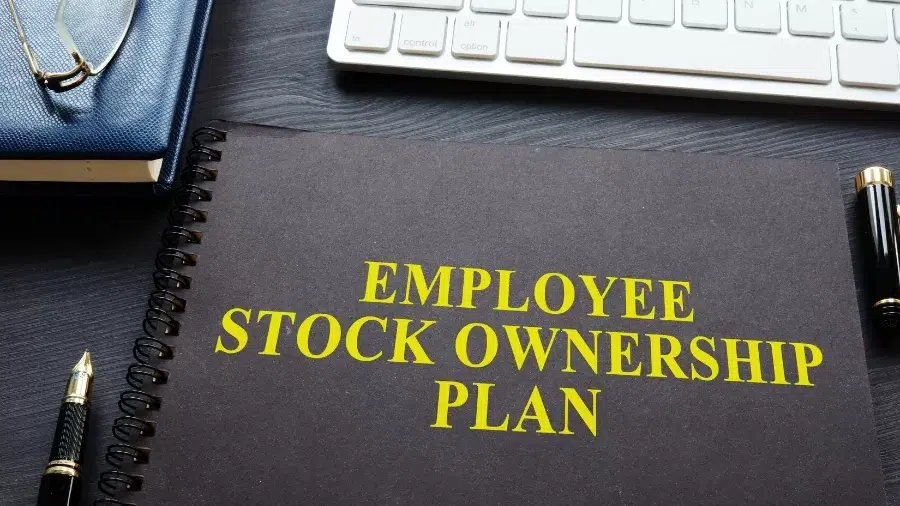Business
Why Manufacturing Companies Are Saying ‘Yes’ to Sell Back to Employees

- More manufacturing companies are adopting Employee Stock Ownership Plans (ESOPs) to improve employee engagement, productivity, and retention.
- ESOPs offer significant tax benefits, enhance financial performance, and help maintain company culture during ownership transitions.
- This model is reshaping the manufacturing sector by empowering employees and supporting long-term sustainability and growth.
In an era of rapid technological progress and changing economic conditions, a compelling trend is emerging in the industrial sector: more companies are opting to sell back to their employees. This shift towards employee ownership is not a fleeting trend but a deliberate strategy driven by various factors that are poised to redefine the future of manufacturing.
Why Sell Back to Employees?
The decision to sell a manufacturing company back to its employees, typically through an Employee Stock Ownership Plan (ESOP), is a complex one. However, the potential rewards are vast and diverse.
Increased Employee Engagement: When employees have a financial stake in the company’s success, they are more likely to be motivated, invested, and committed to their work. This enhanced engagement can lead to higher productivity, improved quality, and reduced turnover. In fact, employee-owned businesses often outperform traditional companies due to greater employee effort, lower absenteeism, and a long-term focus on sustainability.
Protecting Local Jobs and Stability: Selling back to employees helps safeguard local jobs and contribute to economic stability, particularly in communities that are heavily dependent on manufacturing. In areas where plant closures can have severe consequences, employee ownership ensures the company’s continued operation and keeps jobs within the community.
Tax Benefits and Smooth Ownership Transition: ESOPs offer significant tax advantages, making them an attractive option for business owners looking to exit while minimising their tax liabilities. Additionally, selling to employees facilitates a smoother transition of ownership, avoiding the disruptions often associated with other methods of sale or liquidation.
Real-World Examples
Several manufacturing companies have successfully transitioned to employee ownership, experiencing substantial benefits from this innovative approach.
Harley-Davidson Motor Company: In 1983, Harley-Davidson implemented an ESOP, which has played a key role in the company’s long-term success and resilience. The employee ownership model has fostered a strong sense of commitment and engagement among workers, contributing to the brand’s continued growth.
Lincoln Electric Company: A global leader in welding technology, Lincoln Electric has embraced an ESOP since 1953. This move has helped cultivate a culture of ownership and innovation, driving the company’s success and reinforcing the importance of employee involvement in decision-making and operational excellence.
What Exactly Is an ESOP?
An Employee Stock Ownership Plan (ESOP) is a way for a company to share ownership with its employees. It functions as both an employee benefit plan and a method of transferring ownership, providing a solution that can help avoid the challenges associated with private equity sales or competitor acquisitions.
ESOPs are granted to employees based on their tenure with the company, allowing them to accumulate shares over time. While the benefits for employees are clear, ESOPs also offer several advantages for businesses.
For companies, ESOPs can drive employee motivation, improve retention, and boost productivity. Moreover, for business owners, ESOPs present a compelling exit strategy, especially in industries where consistency, efficiency, and employee stability are crucial for success.
Advantages of an ESOP for Employers
Adopting an ESOP can significantly improve a company’s financial performance, operational efficiency, and tax savings—benefits that are especially important for manufacturing companies.
Boosting Productivity and Cost Management: By tying employees’ success to that of the company, ESOPs create a sense of ownership that drives motivation. Employees are more likely to work harder, manage costs more effectively, and contribute to the overall success of the business.
Enhanced Employee Retention: In industries like manufacturing, where long-term employment is common, ESOPs encourage employees to stay with the company by rewarding tenure. As employees accumulate shares over time, their incentive to remain and continue contributing grows, reducing costly turnover.
Financial and Tax Benefits: ESOPs offer attractive tax advantages, which can improve cash flow and provide additional funding for investments in new technology, equipment, and other operational improvements. Moreover, ESOPs help ensure a smooth transition of ownership, preserving company culture and avoiding the layoffs or restructuring that often accompany private equity sales or competitor buyouts.
Encourage Strategic Employee Engagement
Employee Stock Ownership Plans (ESOPs) empower employees to make decisions that align with the company’s strategic objectives. This culture of ownership fosters a proactive, initiative-driven workforce, leading to increased collaboration and long-term business growth.
How to Implement an ESOP in Your Business
To fully leverage the benefits of an ESOP, careful preparation is essential. Here are key steps to ensure successful implementation:
Assess Financial Health: Evaluate your company’s financial standing to determine if an ESOP is a feasible and beneficial option. The financial stability of the business will play a crucial role in the success of the plan.
Educate Employees: It’s vital to inform employees about how the ESOP works, its benefits, and how their contributions to the company’s success directly impact their personal gains. Engaging employees in the process ensures they are invested in the company’s long-term goals.
Plan for the Long-Term: Since ESOPs are a long-term strategy, planning for the future is crucial. This includes forecasting the financial and operational impacts of transitioning to employee ownership.
Seek Professional Guidance: Working with an ESOP consulting firm can provide invaluable expertise in structuring, managing, and implementing the plan, ensuring smooth transitions, and addressing any concerns along the way.
The Future of Manufacturing
As the manufacturing industry continues to evolve, employee ownership is poised to play a pivotal role in shaping its future. By empowering employees, fostering a sense of shared responsibility, and aligning individual and company goals, ESOPs offer a pathway to long-term sustainability and growth.
Adopting employee ownership through ESOPs presents manufacturers with a unique opportunity to drive innovation, enhance competitiveness, and create a more sustainable, prosperous future for both their businesses and the communities they serve.

















































